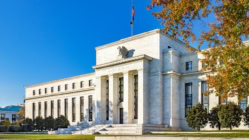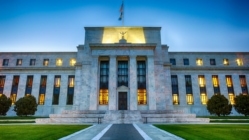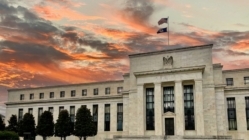
European Central Bank (ECB) Raised Its Short-Term Rate
The European Central Bank (ECB) raised its short-term rate (its equivalent to the Fed Funds Rate that the Fed raises here in the U.S.) by a full 1/2% yesterday.
It shocked many observers because Europe is facing a banking crisis that is potentially much worse than what we face here in the U.S. (for reasons I won’t go into for brevity’s sake).
The ECB, however, thinks the risk of inflation is greater than the banking crisis and/or severe recession risks.
BUT – what really shocked observers was seeing long-term rates fall today, despite the huge increase in short-term rates yesterday.
The German 10-year bond yield plummeted today, and many other bond yields fell as well.
Two Questions:
- Why did the ECB raise rates in the face of a weakening economy? And
- Why did long-term rates fall after the ECB “raised rates?”
The ECB raised rates because they too don’t want to be Arthur Burns (the Fed Chair who presided over our 1970s inflation) or EARLY Paul Volcker (the Fed Chair who ostensibly broke inflation in the early 1980s).
Volcker was in charge of the Fed in the late 1970s too, and when he saw a recession coming, he sharply reduced the Fed Funds Rate (by a full 7%!!!) – and inflation returned with a vengeance.
AND THAT WAS WHEN HE PUSHED THE FED FUNDS RATE TO ALMOST 20% IN THE EARLY 1980s (the “effective Fed Funds Rate” is 4.58% today – for a bit of perspective).
No central banker in the world wants their legacy to be the central banker that allowed inflation to run amok, given how destructive inflation can be.
Central bankers also want to maintain “credibility” because they have been promising to continue to raise rates and fight inflation for the last year, and if they stop now, they will lose credibility.
The other reason the ECB raised rates is that they are utterly clueless, according to Jeff Snider. 😊
Bond yields fell because bond investors believe that the European and world economy as a whole will soon be in a severe recession.
The investors further believe that ECB and the Fed will both be forced to reduce rates in the coming months (not years).
Reminder: Central Banks Don’t Control Long-Term Rates
I am beating this dead horse again to remind readers that central banks (like the ECB and the Fed) do NOT control long-term rates.
So yes, the Fed will likely “raise rates” (raise the Fed Funds Rate) by 0.25% next week, but … it will probably not impact long-term mortgage rates at all.
One more reminder: The “smart money is in bonds!” This is an old saying that says that bond investors are far better predictors of economic vitality than stock investors.
Mr. Snider has studied bond data for the last 100 years too and he notes time and again how accurate bond investors have been as predictors.
And right now, bond investors (and yield curves) are screaming recession and lower rates coming soon!
Sign up to receive our blog daily
























